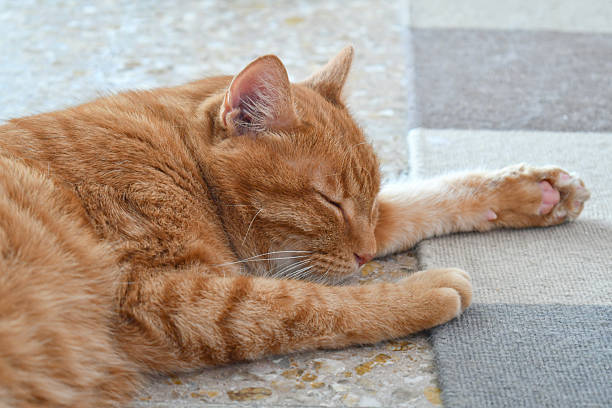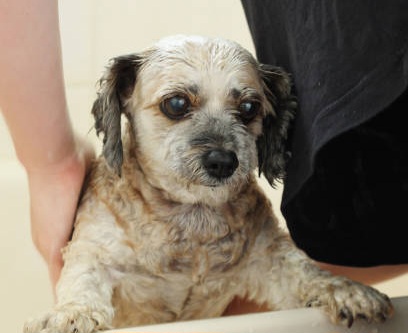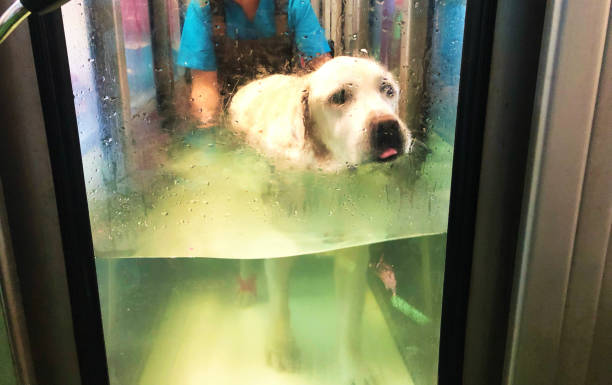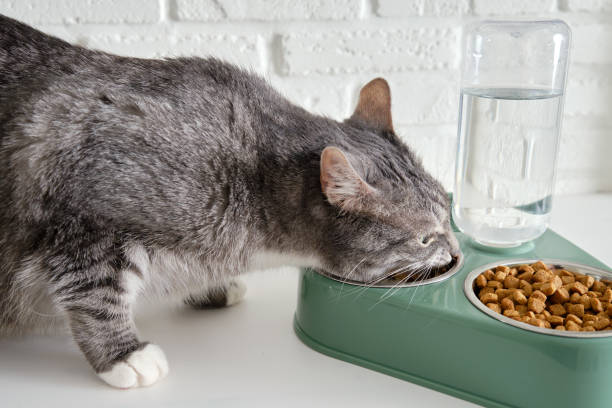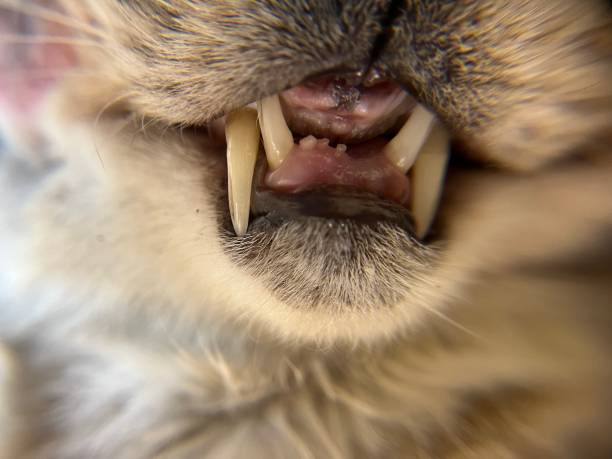Senior Cat Sleeping 20+ Hours Daily: Normal or Sick?
If your senior cat is sleeping 20 hours a day or more, it’s natural to feel a bit worried. Watching them snooze through most of the day might make you wonder if something’s wrong. Compared to younger cats that play, explore, and move around more often, older cats do seem to spend an unusual amount of time curled up and resting. This change can be surprising, especially if your cat used to be more active.
The truth is, aging comes with shifts in energy, sleep, and behavior. That’s why questions like “Is my senior cat sleeping too much?” or “Could this be a sign of something serious?” often come up. It’s good that you’re paying attention. This guide walks you through what’s considered normal when it comes to elderly cat sleep patterns, what might raise red flags, and how to spot real signs of trouble like senior cat fatigue symptoms or unusual lethargy. Whether your cat is simply enjoying longer naps or something more is going on, you’ll find clarity here without the extra worry.
Normal vs Concerning Sleep Patterns in Senior Cats
It’s common to see a senior cat sleeping 20 hours a day. This kind of rest often lines up with natural aging needs. But there’s a line between healthy sleep and a possible sign of illness. Here’s a clear breakdown to help you figure out where your cat stands.
Normal Sleep in Senior Cats
- Sleeps 18 to 20 hours daily: Matches expected aging cat rest requirements. Older cats return to kitten-like sleep cycles.
- Wakes up for meals and litter box use: A healthy routine includes brief periods of activity between naps.
- Still shows interest in treats, sounds, or affection: Even with long naps, normal older cat sleeping behavior includes occasional interaction.
- Keeps grooming habits: A well-kept coat means your cat still feels good enough to care for itself.
- Changes sleeping spots now and then: Movement between cozy locations is part of typical elderly cat sleep patterns.
Signs the Sleep May Be a Problem
- Increased sleep that feels unusual for your cat: Senior cat excessive sleeping that suddenly goes beyond their normal habits may be a red flag.
- Won’t wake for food or bathroom needs: Ignoring meals or litter use isn’t part of normal rest. It can point to senior cat fatigue symptoms or illness.
- Disoriented when awake: Confusion, slow reactions, or wobbliness could be early signs of deeper issues. Unusual behaviors like staring at walls combined with excessive sleeping may indicate cognitive changes in senior cats.
- Avoiding usual spaces or hiding more often: A shift in behavior, especially avoiding favorite spots, may show discomfort or pain.
- Stops grooming or appears messy: Dirty fur or lack of grooming can suggest your cat is too tired or unwell to manage daily routines.
- Hard time standing or moving: If your cat struggles to get up or hesitates to walk, this goes beyond regular aging.
If you’re noticing more than one of the concerning changes above, it’s worth speaking with your vet. Older cat sleeping too much, especially when it comes with other shifts, should never be ignored. You know your cat’s rhythm better than anyone. Trust that sense if something feels off.
Why Older Cats Sleep So Much More Than Younger Ones
Senior cats sleeping 20 hours a day might sound unusual at first, but it’s often a natural part of getting older. Their bodies slow down, and rest becomes more important than ever. Research from the Journal of Feline Medicine and Surgery shows that sleep patterns naturally change as cats age, with increased total sleep time being normal. After years of running, climbing, and daily movement, joints and muscles need more downtime to stay comfortable. Sleep helps with recovery, especially for aging organs that don’t work as quickly as they used to. That’s why longer naps are part of normal aging cat rest requirements.
Older cats also don’t sleep as deeply as they once did. They may drift in and out of light sleep and wake more often, which adds up to more hours spent resting. This change in elderly cat sleep patterns is the body’s way of making up for lost rest. In most cases, this doesn’t mean there’s a problem. But if senior cat excessive sleeping comes with low energy when awake or unusual behavior, it may point to senior cat fatigue symptoms or early signs of illness. Watching for small shifts in old cat sleeping behavior can help spot issues early.
When 20+ Hours of Sleep Signals Health Problems
While a senior cat sleeping 20 hours a day can be normal, certain signs around that sleep might point to something more serious. Pay close attention to the way your cat acts during their awake moments. Below are warning signs to watch for if you’re concerned that this might go beyond normal aging cat rest requirements.
Call Your Vet Immediately If Sleep Comes With:
- Complete loss of appetite for over 24 hours. If excessive sleeping is accompanied by vomiting, read about why cats throw up frequently and when it becomes serious.
- Trouble standing or walking after waking up
- Hiding in strange spots and avoiding all contact
- Breathing that looks strained or open-mouth breathing
- Disorientation or confusion while awake
- Ignoring the litter box or having accidents outside of it
These may be early senior cat lethargy signs or symptoms of serious illness.
Schedule a Vet Visit Soon If You Notice:
- Sleeping more and more each week without clear reason
- Eating less but still picking at food now and then
- Matted fur or less grooming than usual
- Hesitation to jump onto beds, sofas, or perches
- New or strange vocal sounds during the day or night
These could point to senior cat fatigue symptoms or changes in old cat sleeping behavior that need attention before they get worse.
For after-hours emergencies, the ASPCA Animal Poison Control Center and Pet Poison Helpline provide 24/7 guidance.
Age-Related Conditions That Cause Excessive Sleeping
Older cats often face health issues that come with aging. These conditions can lead to your senior cat sleeping more than usual. Spotting changes early helps support their comfort, manage symptoms, and maintain a good quality of life.
Arthritis and Joint Pain
Senior cats with arthritis sleep more to avoid painful movement. The International Cat Care organization notes that arthritis affects up to 90% of cats over 12 years old. They may show stiffness after waking, reluctance to jump or climb, and prefer soft sleeping surfaces. Pain management can significantly improve quality of life and reduce excessive sleeping.
Kidney Disease
Chronic kidney disease affects many senior cats and causes fatigue leading to increased sleep. According to the American Veterinary Medical Association, kidney disease is one of the most common conditions in senior cats. Additional symptoms include increased thirst, changes in urination, weight loss, and poor coat condition. Learn more about senior cats losing weight despite eating well, which can be an early sign of kidney disease. Early detection allows for better management of this progressive condition.
Thyroid Problems
Both hyperthyroidism and hypothyroidism can affect sleep patterns in senior cats. Hyperthyroid cats may sleep more despite increased appetite, while hypothyroid cats show general lethargy. Blood tests easily diagnose thyroid conditions.
Heart Disease
Cardiovascular problems reduce oxygen delivery to tissues, causing fatigue and increased sleep needs. The Cornell Feline Health Center provides comprehensive information on heart disease diagnosis and management in senior cats. Cats with heart disease may show breathing changes, reduced activity tolerance, and prefer elevated sleeping positions.
Diabetes
Diabetic cats often sleep more due to energy fluctuations from blood sugar changes. Other symptoms include increased thirst, urination changes, weight loss despite good appetite, and decreased grooming.
How Senior Cat Sleep Differs From Younger Cat Rest
Young cats often nap between 12 to 16 hours a day, but those naps are usually broken up with bursts of energy. The American Association of Feline Practitioners provides evidence-based guidelines for understanding normal aging changes in cats. They chase toys, climb furniture, and groom themselves regularly. Their sleep tends to be deeper, so they don’t need as much of it to feel rested. You might notice a younger cat snoozing for a few hours, then bouncing back into play mode like nothing happened.
Senior cats, on the other hand, have a different rhythm. It’s normal to see a senior cat sleeping 20 hours a day or more. But that sleep is often lighter and broken up into shorter sessions. Older cats may wake up often, change positions to ease joint discomfort, or shift locations to find a more comfortable spot. These changes in elderly cat sleep patterns are part of the body slowing down. It doesn’t always mean something is wrong. Still, if you notice signs like senior cat excessive sleeping without interest in food or interaction, or senior cat lethargy signs during waking hours, it’s worth paying closer attention. Aging cat rest requirements shift with time, and learning to read old cat sleeping behavior can help you support your cat better through their senior years.
How to Create Comfortable Sleep Environments for Aging Cats
If your senior cat is sleeping 20 hours a day, their resting space matters more than ever. Older cats need more than just a quiet corner. A warm, soft, and easy-to-reach place can make a big difference in how well they rest.
Keep Them Warm
Older cats feel cold faster, even in regular room temperatures. The ASPCA’s senior cat care guide provides detailed recommendations for creating age-appropriate environments. Draft-free spots, sunny windowsills, or a heated cat bed near a safe heat source can help. Create a peaceful environment with cat-safe plants that won’t harm your senior cat if they investigate during their waking hours. Some cats move around during the day, so offering two or three cozy places lets them choose what feels best. This comfort supports healthy elderly cat sleep patterns and makes long naps more restful.
Make Rest Easy on Their Body
For cats with stiff joints, jumping becomes harder. Place beds at ground level or use low ramps to help them reach favorite spots like the sofa. Implement comprehensive senior pet safety practices at home to prevent falls and injuries in sleeping areas. Soft, low-sided beds are easier to get in and out of, reducing strain.
Add Gentle Support
Orthopedic cat beds with memory foam or extra padding help support tired joints in aging bodies. Adding soft blankets or cushions makes it easier for your cat to settle in without putting pressure on bony spots or sore areas. These small changes can ease senior cat fatigue symptoms and better meet aging cat rest requirements.
Better sleep helps with mood, grooming, and overall energy especially for older cat sleeping too much.
How to Keep an Eye on Your Senior Cat’s Sleep at Home
If your senior cat is sleeping up to 20 hours a day, you might be wondering what’s normal and what’s not. Aging cats do need more rest, but it helps to pay attention to how they sleep, where they sleep, and what’s changing. Some changes can be harmless, but others may be signs that your cat isn’t feeling great. The American Animal Hospital Association emphasizes the importance of regular monitoring for early detection of health issues.
Here’s how you can keep track of your older cat’s sleep at home:
Watch Their Sleeping Spots
Cats tend to return to familiar spots, especially as they get older. If your cat suddenly avoids favorite places like high perches or cozy corners, it might be because jumping is painful or they can’t get comfortable. Restless shifting or constantly moving from one place to another may also hint at discomfort.
Take Note of Sleep Positions
A relaxed, curled-up cat is usually doing fine. But if your cat always sleeps stretched out or looks tense while resting, it may mean they’re not fully comfortable. That stiffness can point to aging cat rest requirements that aren’t being met.
Keep a Simple Daily Log
You don’t need anything fancy. Just note when they sleep, how long it seems to be, and whether they wake easily. If your senior cat is sleeping all day and barely moves, it could be more than just old age. Look out for signs of senior cat excessive sleeping or general sluggishness.
Also, note other changes around the same time. Changes like eating less, less interest in play, or not using the litter box normally. When you spot these together, it can be a clue. Senior cat lethargy signs often don’t show up clearly unless you’re keeping track.
Check for Behavior Shifts
If your cat used to greet you or follow you around and suddenly doesn’t, it’s worth paying attention. Even if they’re still eating well, a big drop in energy or hiding more than usual could be linked to old cat sleeping behavior that signals fatigue or discomfort.
Look for Patterns Over Time
A single day of extra sleep isn’t always something to worry about. But if your older cat is sleeping too much for days in a row, or you notice a pattern of them doing less, it’s a good idea to bring that up with your vet. These kinds of quiet shifts can point to senior cat fatigue symptoms that aren’t obvious without tracking.
Encouraging Healthy Activity in Sleepy Senior Cats
When a senior cat sleeps for 20 hours a day, it’s tempting to just let them be. But gentle movement and mental play can actually help them feel better and not worse. You’re not trying to turn your old friend into a kitten again, just helping them stay engaged without overdoing it.
Try feather wands or a quiet laser pointer session. Even just a few minutes a day makes a difference. If your cat lifts their head or follows the toy with their eyes, that’s already a win. Let them decide when they’re done. Pushing them too hard will just wear them out.
Food puzzles and treat-hiding games also help. These don’t need much effort but can wake up their curiosity. It taps into their natural hunting instinct without tiring them.
If you’ve noticed your older cat sleeping too much or showing signs of senior cat lethargy, soft routines like this can ease them back into small daily habits. These are especially helpful for aging cat rest needs and signs of senior cat fatigue.
Nutrition Needs for Senior Cats Who Sleep More
Senior cats sleeping more may need calorie adjustments to prevent weight gain from reduced activity. Less movement means fewer calories burned, so it’s easy for them to gain weight if their food portions stay the same. But it’s not always about eating too much. Many older cats actually lose weight with age, especially if they start to eat less or deal with hidden health issues. That’s why regular weight checks and appetite tracking are important.
Senior cat foods are made with gentle digestion in mind. Nutritional requirements for senior cats are detailed in guidelines from the Association of American Feed Control Officials (AAFCO). These formulas usually include more fiber, protein that’s easier to absorb, and sometimes added ingredients like glucosamine for joint support. All of this helps match the unique needs of elderly cat sleep patterns and slower digestion.
Feeding small, regular meals can help if your cat isn’t finishing large portions. Some older cats feel full faster or become picky, so spreading meals out during the day can help keep them interested. If your cat is avoiding food, check for senior cat dental problems that might make eating uncomfortable. If your cat is sleeping all day, showing senior cat fatigue symptoms, or seems less excited about food, try warming it up slightly or offering soft textures. These small changes can go a long way in supporting healthy aging cat rest requirements and energy levels.
When Medication Might Help Your Sleepy Senior Cat
When your senior cat sleeps more than usual, it’s often normal but not always. In some cases, medication may help, especially if their sleep patterns are linked to pain, anxiety, or underlying age-related health conditions.
Pain Management
Arthritis medications and joint supplements can significantly reduce pain-related excessive sleeping. The International Association for the Study of Pain offers resources for recognizing and managing pain in cats. Many senior cats show improved activity levels and better quality of life with appropriate pain management protocols.
Thyroid Medication
Thyroid hormone regulation often improves energy levels and normalizes sleep patterns in affected senior cats. Regular monitoring ensures proper dosing and treatment effectiveness.
Supportive Care
Medications for kidney disease, heart conditions, or diabetes help manage underlying causes of excessive fatigue. While these conditions may not be curable, proper treatment often improves quality of life and energy levels.
How to Make Vet Trips Easier for Your Older, Sleepy Cat
Older cats who sleep for up to 20 hours a day aren’t just lazy, they’re slowing down with age. If your senior cat is sleeping all day, waking them up for a vet appointment can feel like dragging someone out of deep sleep.
Start by picking a time your cat is usually more awake, like early evening. Keep their favorite blanket in the carrier so it smells like home. Spraying the carrier with feline calming pheromones a few minutes before leaving also helps.
If your elderly cat’s sleep patterns have changed, or they’re showing signs of senior cat lethargy like barely moving or ignoring food, jot those down. Even better, record a short video of anything odd.
This helps your vet figure out if it’s just normal aging cat rest requirements or signs of senior cat fatigue symptoms. Staying observant makes a huge difference in helping your older cat feel better.
What to Do When Your Senior Cat Sleeps All Day
Helping Your Elderly Cat Stay Comfortable as They Age
If your senior cat is sleeping 20 hours a day, it’s not always a cause for concern, it could just mean their body needs more rest. But it’s also a good time to think ahead and make life easier for them as they continue to slow down.
Try to keep things calm and predictable at home. Soft bedding in quiet corners, litter boxes they don’t have to climb into, and warm spots for naps can make a big difference. Regular vet visits matter even more now, helping you spot senior cat lethargy signs early before they affect their daily comfort.
Older cat sleeping too much may seem harmless, but changes in elderly cat sleep patterns, combined with senior cat fatigue symptoms or reduced movement, might need attention. Staying on top of these shifts ensures your aging cat gets the rest they need without missing signs of something deeper.
FAQs: Senior Cat Sleeping 20+ Hours Daily
Is 22 hours of sleep too much for my 15-year-old cat?
While 22 hours seems excessive, some very senior cats do sleep this much normally. However, if this represents a sudden change or comes with other symptoms like appetite loss, veterinary evaluation is warranted.
How can I tell the difference between normal sleep and lethargy?
Normal sleep has a rhythm, your cat still wakes up for food, attention, or routine. Lethargy means your cat is hard to wake or uninterested in usual activities.
Should I wake my senior cat to eat?
Generally, let sleeping cats rest, but if they’re missing multiple meals, gentle encouragement may be necessary. Cats who won’t wake for favorite treats or meals need immediate veterinary attention.
How can I tell if my cat is sleeping or just resting with eyes closed?
Truly sleeping cats have relaxed muscle tone and steady breathing. Cats who are resting but alert will respond to sounds and have more tension in their posture.
Final Thoughts
Senior cats sleeping 20+ hours daily often reflects natural aging rather than serious illness. Learning to recognize normal aging changes versus concerning symptoms helps you provide appropriate care while avoiding unnecessary worry about your feline companion’s changing needs.
Trust your knowledge of your cat’s normal patterns and don’t hesitate to consult your veterinarian when sleep changes seem sudden or concerning. With proper care and attention, many senior cats live comfortably for years while maintaining their love affair with long, peaceful naps.
